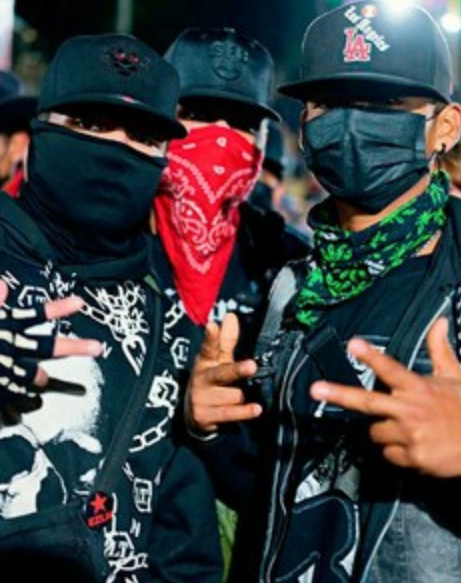
On Saturday, April 19, the double femicide of the Tseltal sisters Valeria and Deisi Gómez Méndez, murdered with bullets and found in the community of Cruz Obispo, in the municipality of Chamula, was made public on social networks. They were 18 and 14 years old, respectively. They had been kidnapped days before in San Cristóbal de Las Casas (SCLC). Their murder adds to the eight that have occurred so far this year and the 32 reported during 2024 in the state.
Violence doesn’t end in an environment where the security strategy imposes despotic and authoritarian police force to publicize what seems to be a long campaign act of the current governor of Chiapas, Eduardo Ramirez. Has a peace pact been made? The prosecutor’s office in charge of the investigations has a past of torture and fabrication of guilty parties that raises doubts when femicides continue and human trafficking, mainly young women and children of indigenous origin, has been established in improvised brothels between SCLC and Chamula.
“Why don’t they report it?” asks a visitor. Some cases of abuse are found in the family environment, others are forced to let their daughters come and go on weekends under pressure from organized crime gangs that persist at the local level. The truth is that little is known about the power networks that sustain the abuse, but it is an open secret that coincides with the ferment of criminal governance in the region, and that along with other factors of hopelessness, affects the mental health of young people who commit self-harm and even decide to end their lives; as documented by the Network for the Rights of Children and Adolescents in Chiapas, youth suicides in indigenous communities continue to increase.
In addition, since the end of last year around twenty men have been arrested on charges of belonging to local armed groups known as “motonetos,” including a couple of alleged leaders. However, the criminal network remains active and continues to recruit young men in public schools by branding them with tattoos on the back of their heads with the initials of the armed group to which they belong. At the same time, the consumption of drugs such as crystal meth is increasing among this population. Gang membership has become part of their youth identity. It is only a matter of time before the fragile pacts of criminal governance dissolve.
But hope also flowers in this land. In recent days the Rebel y Revel Festival: Art, Rebellion and Resistance Towards the Day After” was held in the recently constructed Jacinto Canek caracol, in Tenejapa, where the constant, as in past spaces convened by the Zapatistas, is the participation of hundreds of young men and women support bases who attend, organize themselves and also take advantage of the space to meet and fall in love.
Wearing their traditional costumes with tennis shoes, a trio of young people take the microphone to sing their songs of struggle to the rhythm of hip hop; a young woman with her face covered declaims poetry in Tsotsil, others show the paintings they have made illustrating the common life of their grandparents and great-grandparents made with natural materials. These are the third and fourth generations, heirs of the Zapatista resistance, who dress up as bees with balaclavas, polar bears, stilts, dolphins, parrots and other animal species to represent the play “Nature rebels,” originally called “Bichos,” where they show the importance of the organization for the defense of Mother Earth. Among more than five hundred participants of diverse arts in the meeting, this play was positioned as one of the main ones of the event, directed by Subcomandante Moisés, was praised by playwright Luis de Tavira, who called to learn from the hope that the Zapatistas hold as an antidote against the fear that results from a violent society.
The hope of flourishing in resistance and sustaining the organizational structure that the Zapatistas call “the Common,” an old practice of the indigenous communities, is a call to defend life, to continue believing that another world is possible, one where young people can live with peace and dignity.
Original text by Carla Zamora Lomelí published in Ojarasca supplement of La Jornada on May 8th, 2025.
Translated by Schools for Chiapas.